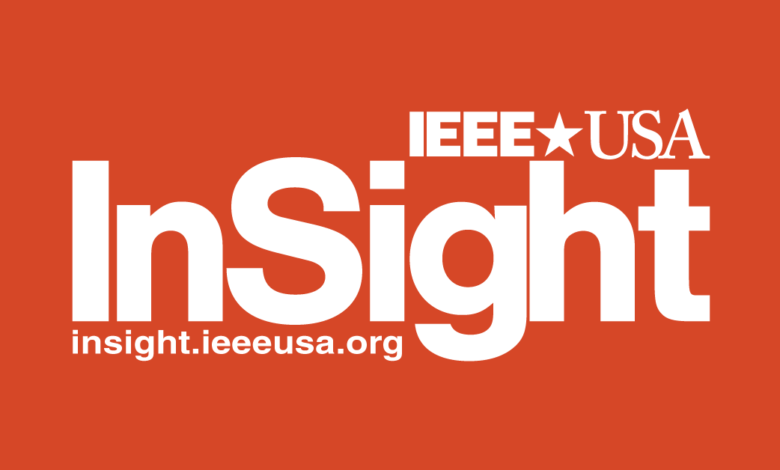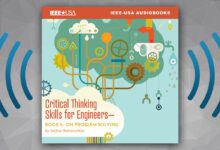
IEEE-USA sponsored two government fellowships this year. Known as a Congressional Fellowship, or an Engineering & Diplomacy (State Department) Fellowship, the program’s goal is to provide a mechanism for IEEE’s U.S. members to learn firsthand about the public policy process, while imparting their knowledge and experience to policymakers. The fellows spend a year in Washington serving as advisors to the U.S. Congress or U.S. Department of State decision makers.
The IEEE-USA 2013 Congressional Fellow, Christopher Reed of Soquel, Calif., served in senior leadership roles in service and engineering organizations ranging from start-ups to Fortune 500 companies before his fellowship. Reed-an IEEE Member for 18 years-most recently created training materials and delivered training for smart grid software integration and received his law degree. Since January 2013, he has served on the staff of the Senate Committee on Homeland Security and Governmental Affairs, Permanent Subcommittee on Investigations.
The IEEE-USA 2013 Engineering & Diplomacy Fellow, Kyle Bunch of Richland, Wash., was a senior research and development scientist at Pacific Northwest National Laboratory prior to the fellowship. Bunch has been a member of IEEE for 27 years, and a senior member for 14 years. Since November 2012, he has served in the State Department‘s Bureau of Arms Control Verification and Compliance, Office of Verification and Transparency Technologies.
IEEE-USA in ACTION caught up with the fellows during the summer to learn about their experiences in Washington so far.
Why did you apply for the fellowship?
Reed: I applied for the fellowship because I had been working with my head-down in tech businesses for many years, and thought the fellowship was a unique opportunity to contribute to U.S. policy, and learn something new. There was a feeling that things weren’t going perfectly in Washington, and I wanted to try to make a small contribution toward improving things.
Bunch: I had been working at Pacific Northwest National Laboratory for several years in the area of arms control, and this fellowship seemed like a great opportunity to interact with the government agency responsible for writing and ensuring compliance with the treaties.
Were you surprised that you were selected?
Reed: Yes, I was surprised. I was with my mother and grandmother around Mother’s Day last year, when I got the call from IEEE-USA telling me I was selected, and it was a very emotional time for me. Every day, I try to appreciate how lucky I am to have gotten the chance to be here this year and make the most of the unique opportunity I’ve been presented.
Bunch: I was surprised and honored at the same time. I had followed this fellowship for some time, and I realized the fabulous opportunity it represented. I try to stay aware of where I am, and how I can best serve the needs of the State Department in my current capacity.
What were you nervous about before you began the fellowship?
Reed: The biggest anxiety I experienced was about what the routines were going to be like on a daily basis. After a month or two, I got into my routine and reached equilibrium, so that I didn’t have to be on high alert all the time. By then, I knew what they were expecting of me and I knew how to accomplish the tasks assigned to me.
Bunch: I was worried about whether I’d be able to overcome the different challenges that I’d face. As an engineer, this experience was going to bring me far out of my technical comfort zone, to work with people experienced in policy. I had to be ready to learn their language, how they interact with people, and how they make their decisions.
What is the goal of the subcommittee/office you work for?
Reed: The Permanent Subcommittee on Investigations is an oversight committee that investigates complex financial matters, corruption, fraud, or other types of abuses that often involve billions of dollars, and may require a policy change to prevent them from happening again in the future. For example, the most recent subcommittee hearings concerned tax avoidance on the part of large companies, including Apple Inc., Microsoft Corp. and Hewlett-Packard Co. The subcommittee examined the structures and methods employed by multinational corporations to shift profits offshore and how such activities are affected by the Internal Revenue Code and related regulations. Last year, a subcommittee hearing examined the issue of money laundering, drug trafficking and terrorist financing vulnerabilities created when a global bank, HSBC, used its U.S. affiliate to provide access to the U.S. financial system to high-risk affiliates, correspondent banks and clients.
Bunch: The Office of Verification and Transparency Technologies is responsible for defining the needs for the broad area of arms control verification and compliance. Arms control treaties generally include compliance measures, such as inspections, because a treaty is only as strong as its verification protocol. We try to determine what technologies can support existing treaties, and what can support future treaties. We’re always looking for the next wave of technology that might support verifying treaties that range in areas from nuclear to biological and chemical arms.
How do you contribute to the office’s goals?
Reed: Eighty percent of my time is spent as an attorney-reviewing documents, preparing subpoenas, writing reports and supporting senior staff. The other 20 percent of my time is spent creating processes and training materials for the software packages the office uses to sort through thousands or even millions of documents, to find 100 documents that are key to the investigation. With the subcommittee’s allocated staff and budget, we need to use technology to effectively prioritize documents and prepare our investigative reports and questions for the hearings.
Bunch: Because of my lab background, I have been interfacing quite a bit between the Department of Energy’s Office of Science Laboratories, and my office. I have also reached out to various entities requesting they submit fresh ideas and concepts for new technologies that could support our future verification needs. The office has a seed fund to support proposals of this type.
What have you liked most about your fellowship?
Reed: I have appreciated being mentored by senior staff attorneys, like David Katz and Bob Roach, who have been investigators for decades, and have so much experience about making the world a better place.
Bunch: I have enjoyed interacting with high-level government officials, and watching decisions be made that can broadly impact this country. These are things that typical engineers may never be exposed to during their careers. I’ve also enjoyed meeting people with skillsets that are different from my own. I’ve learned a lot about how to interact with people and handle situations diplomatically by watching Acting Undersecretary Rose Gottemoeller, the head of the Bureau of Arms Control, Verification and Compliance. Dealing with people is one of the more challenging things engineers do, and if you can master that art form, I think you can really accomplish quite a bit that you wouldn’t otherwise be able to.
What will you do when your fellowship ends?
Reed: I will likely return to the West Coast and pursue investigative work, perhaps with a federal agency, or work with a tech company to help the company determine what the laws mean, and how to comply with them.
Bunch: I have committed to another year at the State Department as an IEEE-USA fellow. After that, I want to continue supporting the goals of my office here.
Abby Robinson is an IEEE Senior Member and freelance writer based in the Washington, D.C. area.






